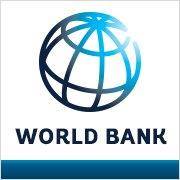The Europe and Central Asia region continued to make progress towards gender equality, with 15 legal reforms carried out in the past two years to improve women’s economic inclusion, says the World Bank Group’s Women, Business and Law 2018 report, released today.
But the region lags in providing adequate protections to women against violence, particularly in the workplace. Restrictions on women performing certain jobs also widespread in the region, says the biennial report, which examines laws that impede women’s employment and entrepreneurship in 189 economies across the world, including 25 from Europe and Central Asia.
Now in its 5th edition, the report introduces, for the first time, a scoring system of 0 to 100, to better inform the reform agenda. Scores are assigned to every monitored economy on each of the report’s seven indicators: accessing institutions, using property, getting a job, providing incentives to work, going to court, building credit, and protecting women from violence.
“Economies in the Europe and Central Asia region generally do not differentiate between women and men in many of the areas tracked by Women, Business and the Law. But the lack of adequate protections against domestic violence or sexual harassment at work and job restrictions can reduce women’s potential earning and limit their labor force participation,” said Rita Ramalho, Senior Manager of the World Bank’s Global Indicators Group, which produces Women, Business and the Law.
Several economies acted to remove legal barriers to women’s employment in the past two years. Bosnia and Herzegovina eliminated several restrictions on women’s employment, including in jobs deemed arduous, hazardous and underwater work; Bulgaria removed all restrictions on women’s employment; and Tajikistan abolished a restriction on women’s night work.
Despite this, 14 economies in the region prohibit women from working in certain industries and nine economies shut women out of certain occupations that are deemed unsafe, arduous or morally inappropriate. On average, the region scores 77 on the getting a job indicator, with only two economies, Latvia and Lithuania, scoring a perfect 100.
Other reforms in the region included Albania, which passed a new labor code mandating equal remuneration for women and men in equivalent jobs. Similarly, Turkey adopted a new law prohibiting gender-based discrimination in employment, such as promotions. Azerbaijan and Moldova enacted legislation equalizing the ages at which men and women can retire and receive full benefits. Albania and Moldova introduced paid paternity leave helping women remain in the labor force after starting a family.
The region’s poorest performance is in the area of building credit, which constrains women’s access to credit. Seven economies receive 0 and only two receive 100 on this indicator, while the region as a whole scores 33.
Another underperforming area is protecting women against violence, on which the region receives a score of 59, with almost a quarter of the region’s economies lacking workplace harassment laws.
While more needs to be done to protect women against violence in the region, progress is being made in Lithuania, where a new law was passed to prohibit sexual harassment in education and establish civil remedies for sexual harassment in employment.
The full report and accompanying datasets are available at https://wbl.worldbank.org





















































To the Lloyd Blankfein of Goldman Sachs. CBS anchor woman Cindy Hsu recently got involved in dangerous coraption business with crazy CBS anchor Otis Livingston to steal money from Goldman Sachs company employees bank accounts nevet trust Cindy Hsu and Otis Livingston they are nothing but crime!!!!!!!!!